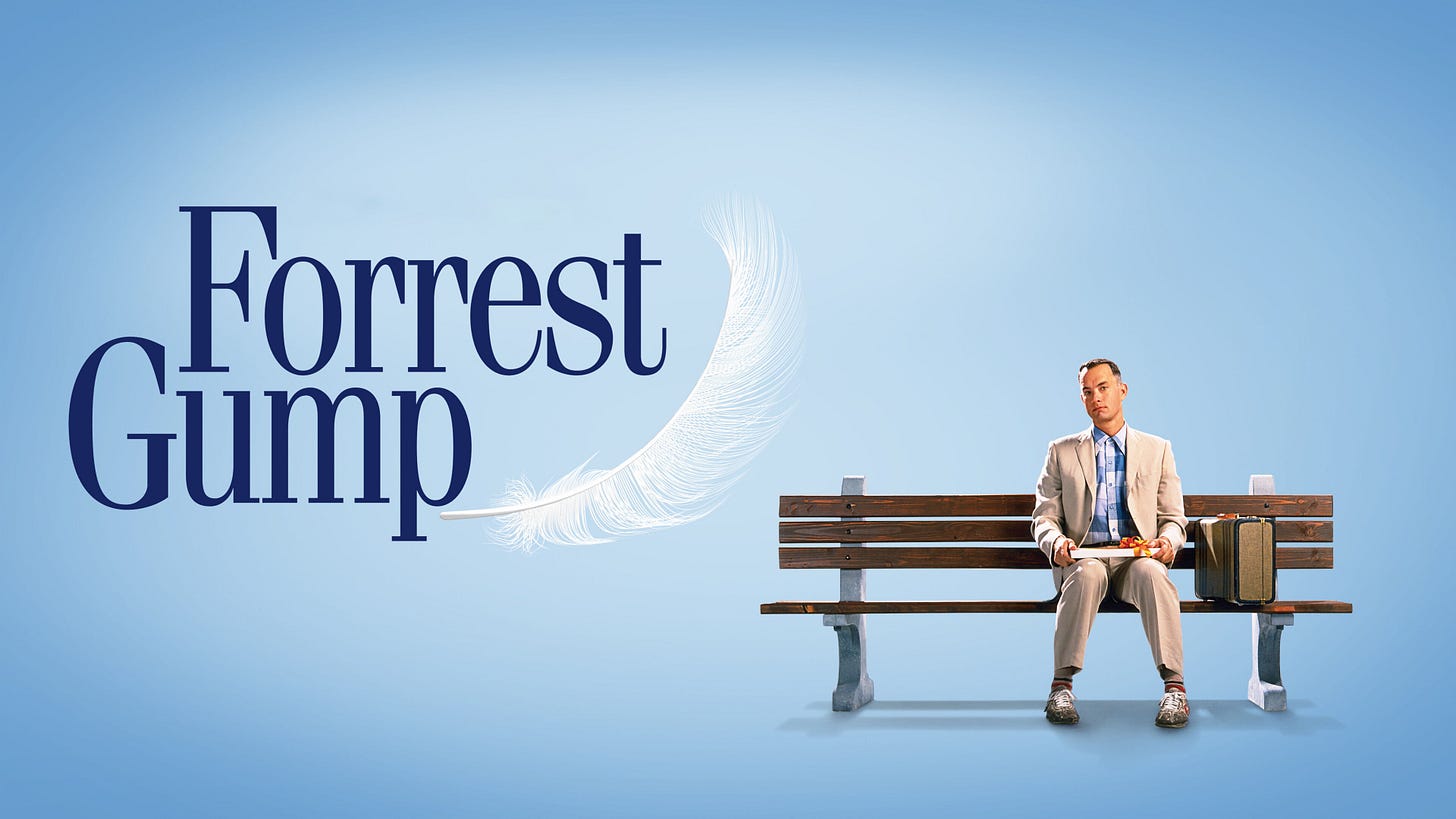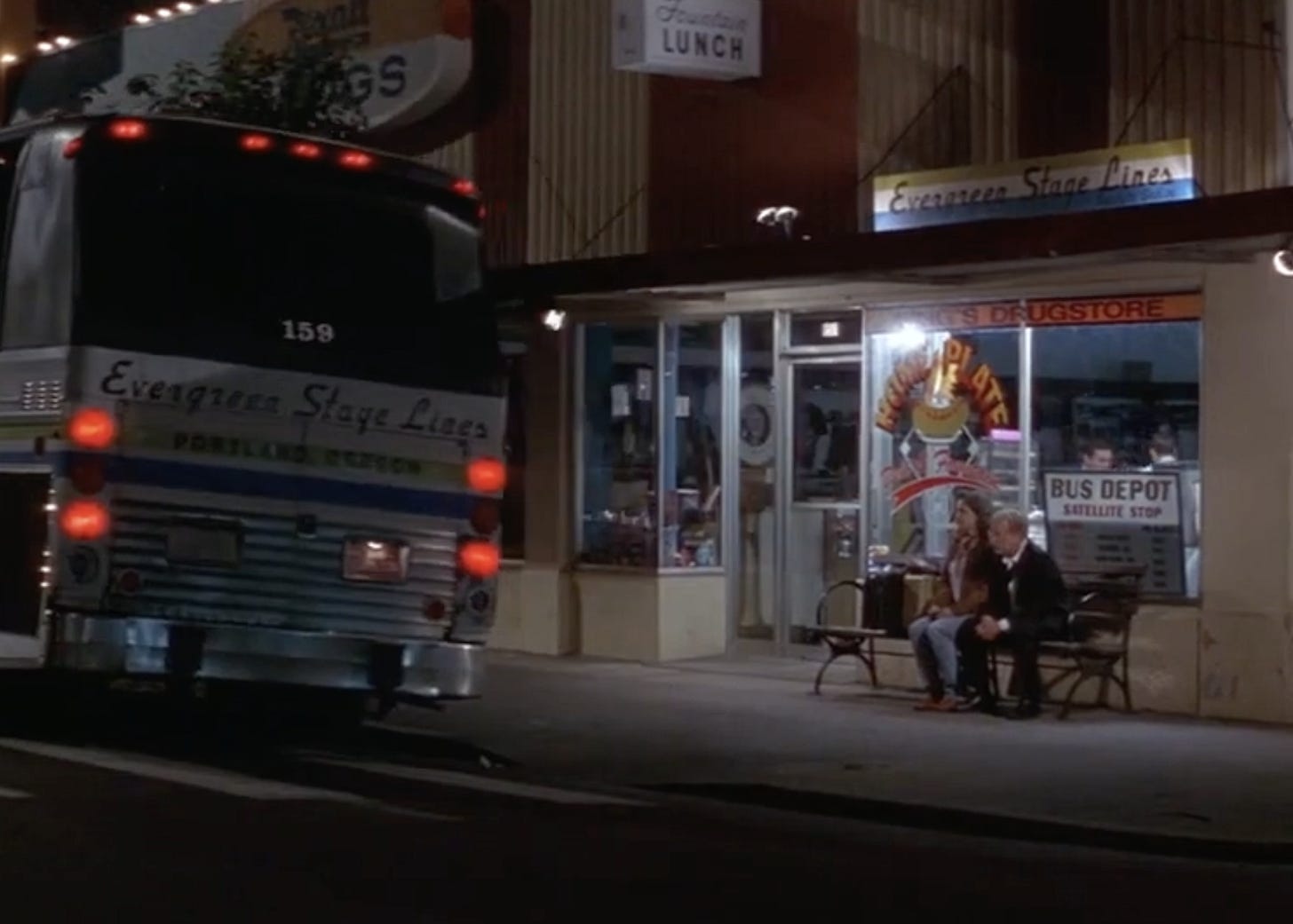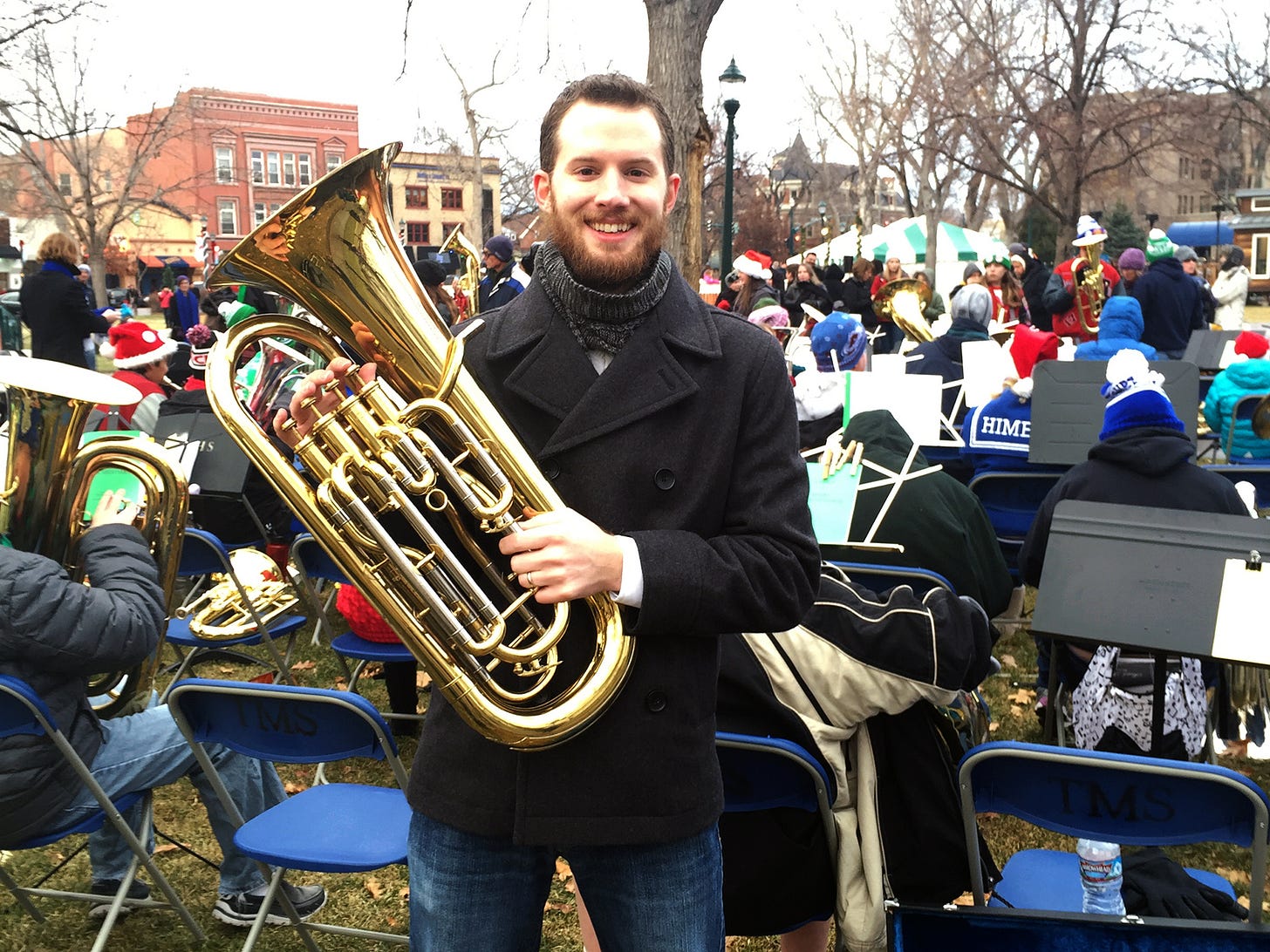Watching Mr. Holland’s Opus After 25 Years Later Is Comforting and Shocking
I first watched this movie when I was 13. I just watched it again over the weekend, and 25 years later, it was astonishing to see. Some parts, I identify with, and some parts did not age well.
What a difference a few decades makes! I watched the movie Mr. Holland’s Opus over the weekend with my wife, and it was an eye-opening experience. I see it from a totally different perspective now.
The first time I saw it, I was just a kid. It had only come out a few years earlier, so I was probably 13. At the time, it seemed like a long, kind of boring movie with some interesting scenes mixed in.
The first time around, most of the humor was over my head, and all of the relationship drama with his wife didn’t make any sense to me at all.
Watching it now, not only after my high school years are long past, but I’m getting ever-closer to my third decade of fatherhood, and having five children (with two of them in high school), my perspective is completely different.
Parts of the story shown on the screen were beautiful and ageless. And some parts did not age well at all. Here are a few of my thoughts on this epic film that has taken on a whole new meaning to me in 2024.
It’s a LOT like Forrest Gump.
The movie starts in the 1960s and ends in the 1990s, and throughout the timeline, it continually tracks Mr. Holland’s progression from a newbie school teacher in 1965 until he gets forced into early retirement in 1995 while, at the same time, tracking the progression of America’s development as a nation. And what a remarkable few decades those were!
Scenes of his teaching career are juxtaposed with happenings in the US at large: the Kent State shootings, the Moon landing, the Vietnam War, flower power, and a lot more. This is a nice effect: it shows how his career changes over time, how his students change over time, and how America changes over time.
This is very much like Forrest Gump in one sense: Forrest Gump (my favorite movie ever) does the same thing. Except that, in Forrest Gump, the main character is an integral part of all of those things: he fights in the Vietnam War, receives the Medal of Honor, meets JFK, LBJ, and Nixon, teaches Elvis Presley how to dance, and becomes a world-champion ping-pong player as US-China relations soften, etc.
In contrast, in Mr. Holland’s Opus, Mr. Holland just keeps doing the same thing over and over: teaching music at the same school, every day, every year, every decade, while his students end up participating in the moving and shaking of the world around him.
(This is best exemplified by “Gertrude Lang,” his insecure clarinet student who grows up to become “Governor Lang” by the end of the film. She goes from being the most shy, quiet, and embarrassed student in the school to running the entire state.)
On a final side note for this point: both movies are about children with disabilities. In Forrest Gump, it’s the main character that has both physical disabilities (leg braces) and developmental disabilities (which are never named but very likely due to Autism). However, in Mr. Holland’s Opus, it’s the son of the main character with disabilities. So there’s a similarity there, but also a big difference.
It is a very long movie.
I don’t remember this from when I first saw it: it’s over 2.5 hours long. That’s not a big problem, but that does make it an unusually long movie.
What’s weird when I watch it now, though, is that it feels like two different stories. There’s a whole story of him starting out, becoming a teacher, getting used to teaching, accepting his plot as just a boring ol’ music teacher at a lame high school instead of the grand musical composer he envisioned himself being, etc. They probably could have stopped there, and that would have been a full (and satisfying) story.
But then there’s a second story with the uncomfortable quasi-love interest between Mr. Holland and his student, Rowena. This makes the movie take a completely unexpected left turn, and the story launches into a totally different direction that really has nothing to do with the first story.
I never noticed that before.
What the F*** is up with the creepy love interest with his student Rowena?
Whoa! This part was totally shocking. I was not ready for this. Halfway through the film, we meet Rowena Morgan, a high school senior with a knack for singing show tunes. She comes along at the eleventh hour to rescue the Gershwin Musical Revue as the only talented woman to audition for… anything.
He’s immediately enraptured with her as a student, as a performer, and as a symbol that represents a life he can’t have anymore. Over time, this dynamic becomes creepier and creepier.
I know I saw this before as a kid. I know I saw all the same scenes and heard all the same dialogue. Nothing about the movie itself has changed.
But holy buckets, does it “slap” differently now!
The highest (or lowest) point of this nearly illicit relationship is when Rowena tells Mr. Holland she’s dropping out of high school and taking a bus to New York City and asks him to go with her.
He doesn’t go with her, of course, leaving behind his wife and child as she suggests, but he does actually go meet her at the bus station. And lingers. And kisses her. The fact that it’s on the cheek only makes it slightly less angering to the audience.
When I first saw this as a young child, I thought it was weird, confusing, and unnecessary. But seeing it now as a father of two high-school-aged girls myself, let me tell you: if I heard my daughter was dropping out of school and running away to New York City, I’d have a stronger reaction.
And if I found out that my daughter’s band teacher had met with her weeks before, privately, at a diner and encouraged her to do so, against my wishes (as he does), then met with her at a bus station and kisses her, I’d have a few very violent words to say to him as well. (Or maybe no words at all, just violence.)
I can’t believe how poorly this part of the movie aged. Maybe it wasn’t acceptable back when it first came out, either. But in post-2020 America, where everybody is triggered about everything, always, and where sexual assault is in the news constantly, I can’t imagine a movie that would dare to even hint at a 30-year-old married man kissing his 17-year-old female student.
That is totally wild.
His son’s name is Cole. That’s boring. But his full name is way cooler.
If you just watch the movie passively and don’t pay close attention, you’d know that Mr. Holland’s son is named “Cole.” No offense to anyone named Cole, but it’s just not that special.
But his son’s full name is actually Coltrane Gershwin Holland. He named his son after John Coltrane, the Jazz saxophone player, and George Gershwin, the composer. That is super cool!
As a musician and lifelong music lover myself, I did the same thing. Four of my five kids have musical names.
I named my oldest daughter, Aja, after the Steely Dan album “Aja.” It’s no exaggeration to say the song “Deacon Blues” on that album changed my life, and I decided as a young, single man, years before I met my wife, “If I ever have a daughter, I’m going to name her Aja.” And that’s exactly what I ended up doing.
I gave my oldest son, Kendrick, the middle name Rush in honor of Rush, the incredible rock trio from Canada. Earlier, though, before we picked that name, we almost chose “Ira” (after Ira Gershwin) for his middle name, which comes extremely close to Mr. Holland’s son’s name.
Jude Harrison, my second son, got a double dose of the Beatles in his name: Jude for the song “Hey Jude” and Harrison for George Harrison, their guitar player. He doesn’t think this is cool… yet. He will, someday.
Austin Jazz, my youngest son, was named for Jazz (obviously), one of my favorite-ever musical genres. I wanted to name him Austin Blues, but my wife wouldn’t agree to that so we chose Jazz instead. And boy, does that fit: he’s an explosive, dissonant, loud, musical firebrand who makes sound everywhere he goes.
So, in all, I have a daughter named after a song, a son named after a band, a son named after a song and a band, and a son named after a musical genre.
(Side note: my second-born daughter has no musical name at all. For some weird reason, I just… forgot. We liked other names for her aside from musical names. The weird thing is that she’s probably going to be a professional musician when she grows up, so… that’s ironic.)
The emotional breakdown of the mother about her son’s disability is so real.
I don’t have any children who were born deaf, but one of my children is mostly deaf in one ear, one has severe vision issues, and one of them was diagnosed with some special needs and a developmental disorder.
So when Iris shouts at her husband in the kitchen and breaks down crying, I can’t entirely relate to her exact situation, but boy, can I come close.
“I don't know what he wants, I don't understand what he's trying to say. Don't you get it? You walk to school every day with all these children who are normal. I can't talk to my son! I don't know what he wants or what he thinks or what he feels. I can't tell him that I love him, I can't tell him who I am. I want to talk to my son! I don't care what it costs, I don't care what the stupid doctor says it's right or wrong. I want to talk to my son!”
Let me just say here: whoever wrote this dialogue was not a genius or a super-star Hollywood scriptwriter. I’m telling you now: whoever wrote these lines was a parent of a child with disabilities.
I have a child who has been deemed “not normal” by the educational system, and watching this dialogue play out in the kitchen is something I’m intimately familiar with.
I can’t count the number of times my wife and I have fought—while trying not to fight—with each other about how hard it is to find the right place to educate our children in a system that doesn’t want them because they “aren’t normal” like the other kids, or because their behavior confuses or terrifies other people.
It’s frightening. It’s miserable. It’s exhausting.
When Cole throws a fit in the kitchen, stomps on the ground, and screams at his mother because she can’t understand what he’s asking for, she starts screaming and throwing plates in anger because she’s so hurt and traumatized by not being able to understand him… I felt that. I felt it in my stomach, my heart, and my eyes, which were filled with tears.
When I saw this as a kid, I didn’t understand a thing about it. I thought it was a boring part of the movie that was distracting from the interesting bits about marching bands, and music. But when I saw this a few days ago, my lip was quivering, and my chest was trembling. I felt it all over my body.
Over the years, my wife and I have both taken turns shouting at each other, “Well, what do you want me to do about it?” knowing that neither of us has the answer and that neither of us is “the bad guy.”
Sometimes, there are no good answers.
Sometimes, there’s nothing anybody can do.
Sometimes, there are no solutions.
You just have to sit there in the misery. Alone. Quietly. Trying not to hate your child for the pain and confusion they’ve brought into your life, all the while knowing that it isn’t their fault anyway, even though that doesn’t make it any easier.
I’ve had to do exactly what Mr. Holland did in this situation: try to find a place where my child can fit in, or get help, and find answers (he sends him to a special private school for the deaf), and then later panic about the cost and try to just “figure it out.”
Ugh. It’s really, really hard. Most people who seem to have “normal” children will probably never understand this. It’s okay. It’s not their fault. But it’s hard not to hate them sometimes.
When kids die in wars, it’s an absolute tragedy.
When I first watched the movie, I felt a little bit sad when they showed the casket of one of Mr. Holland’s students who died in battle in the Vietnam War. But what did I know? I was just a kid.
Now, as an adult and a father, I can’t even imagine this scene playing out in front of me.
I hate war.
I despise war.
I loathe war more than I can even put into words.
When I was a kid, I knew nothing of war. Now, I still know very little personally, but I know of men who have served in wars, who have lost limbs in wars, and who have lost their lives in wars. It’s a tragedy, always.
It was a tragedy every single time a young man was deployed overseas and came home in a flag-draped casket.
Looking out at the current direction our country seems to be going, with war profiteering front and center in Ukraine/Russia, Israel/Palestine, and now, even Taiwan/China, my blood boils at the thought of even more innocent young men being sent off to fight battles that the men and women who send them would never be willing to fight themselves.
Now, it’s a chilling scene to watch when the soldiers hand the parents a folded American flag. And I literally jumped when I heard the 21-gun salute.
It’s a tragedy. I couldn’t understand that before. Now, I can. And I’ll do everything I can to prevent my own three sons from leaving America to fight in irrelevant, unconstitutional, and wasteful wars overseas, then coming back home to America in body bags.
Tubas are cool instruments. Stop pretending they aren’t.
Finally, on a somewhat light-hearted note, my last criticism is one that I’m still just as angry about today as the first time I saw this film.
Louis Russ, one of the students, has grades that are so bad that he takes band in order to find one single class that he won’t fail. He has no natural sense of rhythm, no understanding of melody or harmony, has never played a musical instrument, and can’t read sheet music.
Mr. Holland starts listing off instruments he could start playing and use in the marching band.
“A tuba?” Mr. Holland asks.
“Tuba? Tuba’s are for fat guys with pimples,” Russ says.
That’s it. Stop there. That’s my beef.
STOP SAYING TUBAS AREN’T COOL.
TUBAS ARE COOL.
THEY ARE NOT FOR FAT GUYS. END OF STORY.
Look, jerk, the tuba is an incredible instrument. I should know. I played it. I loved it. I still love it. It makes a beautiful sound, and it’s an essential part of the low brass and rhythm section in a marching band.
As far as marching band music is concerned, the two most important instruments, in my opinion, are:
the bass drum
the tuba*
Ask any band teacher, and the odds are they’ll agree with me.
(*To be technically accurate, in a marching band, a tuba player would usually be using a Sousaphone, which is a lighter, fiberglass version of a tuba. However, this is NOT always the case: sometimes they do actually use full-blown brass tubas).
All right, that’s it. I’m done comparing and complaining now. If you’ve never seen the movie, I highly recommend you watch it. If you have, I recommend you watch it again and see how your perception over the years may have changed.
Either way, let me know what you think!











I have a vague recollection of this movie, and I’m so glad to know what it is now! It would float back to me my mind in bits and pieces, I remember the moment the mother realizes her son is deaf because he’s not disturbed by the emergency vehicle sirens (maybe an ambulance?), and fights they would have about it, and the dad singing “Beautiful Cole.” I’ll have to go watch it now to get the whole picture. Thanks for pulling back the curtain on some of my own dusty memories by retelling the story in your own way; that was fun!
It’s a great movie. I loved it… but that part with Rowena was really shocking.